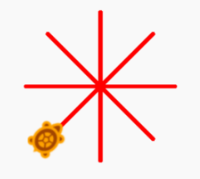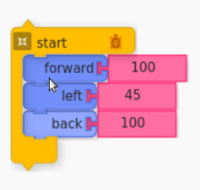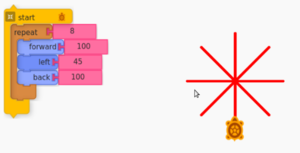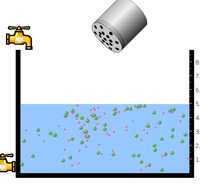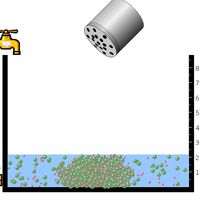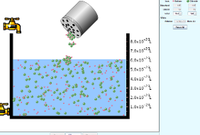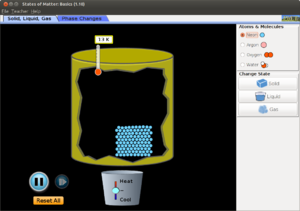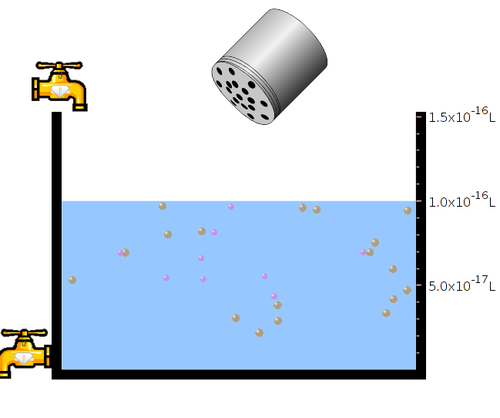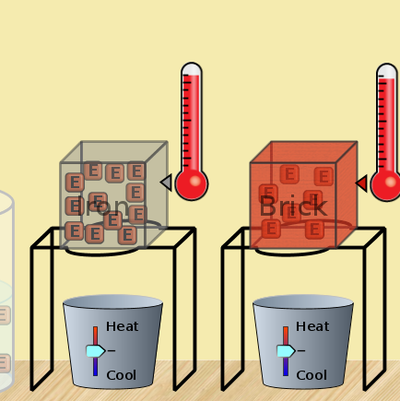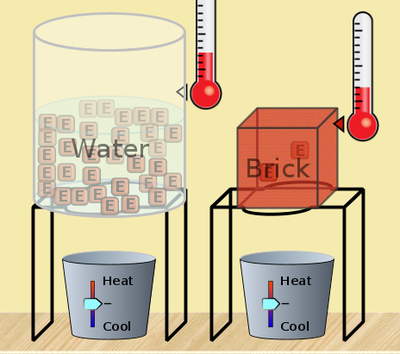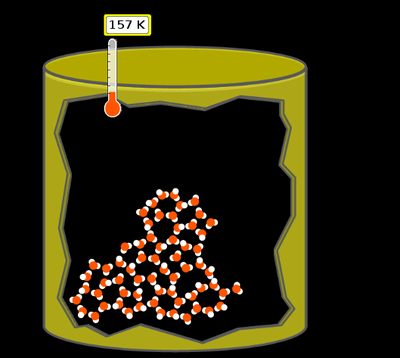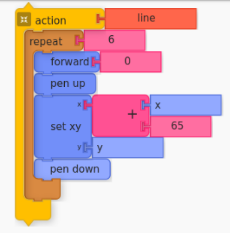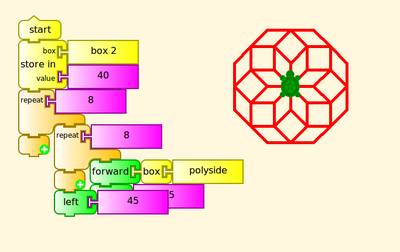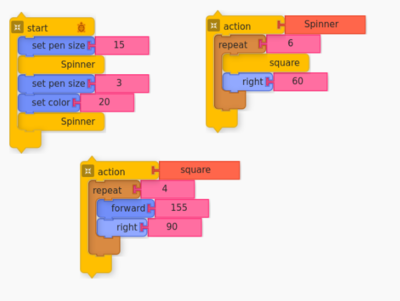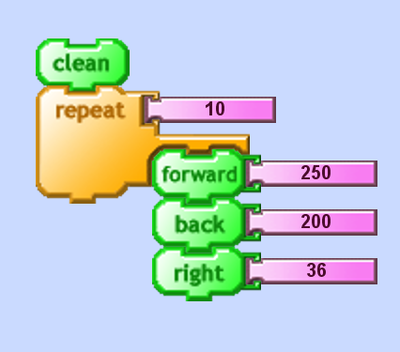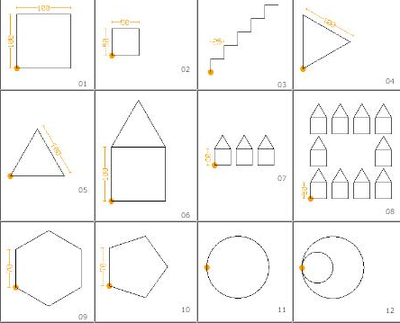Difference between revisions of "Turtle art lesson 3"
| Line 15: | Line 15: | ||
|Activity #1 (Part A) | |Activity #1 (Part A) | ||
1.What was the answer to the previous question?<br> | 1.What was the answer to the previous question?<br> | ||
| − | [[File:1.png|200px]][[File:2.png| | + | [[File:repeating instructions and blocks 1.png|200px]][[File:repeating instructions and blocks 2.png|200px]]<br> |
2.The turtle moved 8 times; how did we make the turtle do the action 8 times? (By clicking the start button)<br> | 2.The turtle moved 8 times; how did we make the turtle do the action 8 times? (By clicking the start button)<br> | ||
3.Is there a way to give this instruction in a simpler way (encourage the class to think of a process being repeated multiple times)<br> | 3.Is there a way to give this instruction in a simpler way (encourage the class to think of a process being repeated multiple times)<br> | ||
| − | [[File:3.png| | + | [[File:repeating instructions and blocks 3.png|300px]]<br> |
4.Demonstrate the repeat command<br> | 4.Demonstrate the repeat command<br> | ||
5.We have repeated the command 8 times. <br> | 5.We have repeated the command 8 times. <br> | ||
Revision as of 13:22, 14 July 2016
| Week 3 | Simplifying programming – repeating instructions and blocks |
| Objectives |
|
| Hands-on Activity | Activity #1 (Part A)
1.What was the answer to the previous question? |
| Activity #1 (Part B)
1.What was the answer to the previous question? | |
| Steps | Activity #1
|
| Steps | Activity #2
1.Using the repeat command after taking inputs (defining variables) |
| Steps | Activity #1
|
| Portfolio components |
1.Study the picture below and answer the question 4.Construct the following figures using Turtle |
